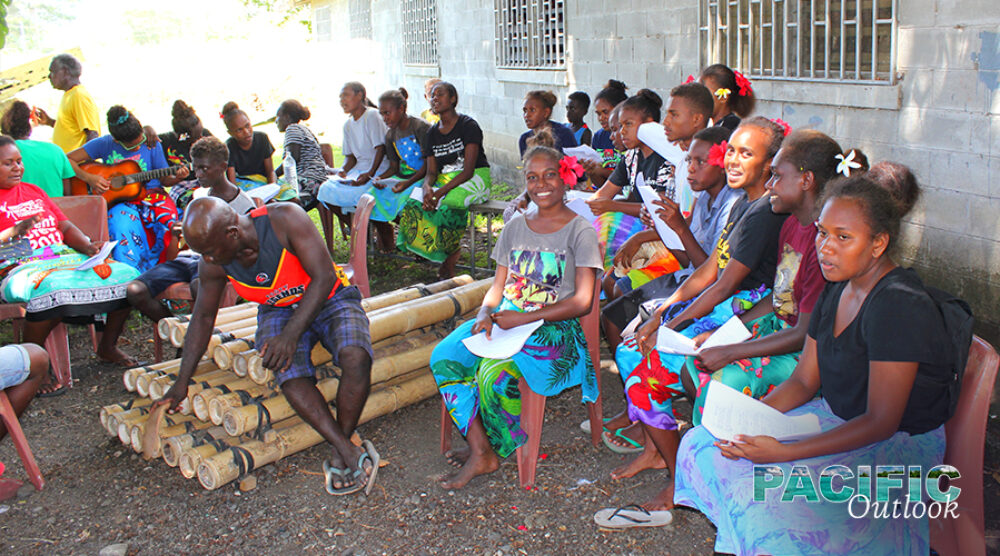After signing a security deal with China in April and a $100 million deal with Chinese telecommunications giant Huawei in August, Solomon Islands became a contentious area of focus in Australian diplomacy, politics and the media in 2022. Concerns that the security deal may jeopardise regional stability arose in the context of China’s transnational and transcontinental ‘Belt and Road’ foreign policy initiative (BRI). The agreement also sparked a debate about the role of overseas aid and development in Australia’s foreign policy including calls for a less counter-productive security driven approach and more coordinated strategies between development, diplomacy and defence. Arguments for the instrumental role of Australian aid struck a chord and October 2022 saw a historic increase in Official Development Assistance to the Pacific. Subsequently Minister Wong and Minister Conroy’s Call for Public Submissions to Inform Australia’s New International Development Policy was underpinned by the objective ‘to achieve a peaceful, stable and prosperous Indo-Pacific’.
However, there is still room to take an additional and important step away from the debate, framed predominantly through the lens of Australia’s engagement with China, to consider another argument. Specifically, let us not forget the importance of non-instrumental arguments for aid to complement those championing development as a security strategy. And whilst we are there, let us hear and learn of the on-the-ground development voices, programs and initiatives of our Pacific neighbours that continue to progress every day, albeit quietly in comparison to the roar of Chinese geopolitical discourse that dominates our media. These approaches will become increasingly important as the development issues of our time including climate change, poverty, and gender inequality, continue to mount every day.
First, there is a need to remember arguments for increased aid underpinned by Australia’s inherent commitment to equality for our neighbours, in addition to those that are instrumental. In 2022, poverty levels were predicted to rise for the first time in 20 years. The World Bank’s most recent report showed that the global extreme poverty rate increased from 8.4% in 2019 to 9.3% in 2020. In 2022, Australia contributed 0.22% of its gross national income (GNI) to Official Development Assistance (ODA). Despite positive progress under a Labour Government, this falls short of the United Nations target for countries to spend 0.7% of their GNI. Issues such as climate change, poverty or infrastructure gaps will continue to pose challenges for low-income countries. We cannot risk these issues being muted by the louder ‘China Mania’ debate. As Wood warned: ‘the more Australian aid is focused on countering China and shoring up allegiances with political elites in Pacific countries, the less likely it is to actually help people in need’.
Second, we must give Pacific voices, histories and agencies adequate airtime. This is because global policies and events are not just about the major-players: how they manifest diversely will always lead to more complex regional experiences than we may take at face-value. This position is inspired by recent Belt and Road Initiative scholarship that explores how Cold War historiographical concepts, such as moving beyond bi-polar politics, can produce better research on the contest between the US and China today. This is a useful contribution to the China, Solomon Islands and Australia debate. Indeed, by failing to listen to local voices we risk dismissing agency or framing the Solomon Islands as unable to manage their own sovereign affairs. On the other hand, being good listeners will aid us to understand the multiple reasons behind the geopolitics we seek to comprehend. Pointing to Australia’s consistent decrease in ODA under the Coalition, in this context our Pacific neighbours looking to alternative sources of development finance is less surprising. Similarly, despite Pacific island nations welcoming Australia’s ‘renewed commitment’ to climate in July of last year, Australia’s track record of unambitious climate change policy played a key role in undermining relations with Pacific Island nations.

At a more granular level, too often the stories of individuals and communities fall through the cracks of wider geopolitical discourse. Amidst the security focused reporting, we miss on-the-ground development updates from Solomon Islands such as the 10 year Australian Humanitarian Partnership. The ‘Disaster READY’ program is designed to build the existing capacity of local organisations to effectively manage disasters. AHP partners are working to ensure that pregnant and new mothers can access cash and voucher payments to purchase essentials during periods of disaster. Programs such as these will only become more important in the face of climate change. In a debate raising key questions about aid and development – centering the voices of those for whom development programs and financing are designed for is vital.
This does not mean taking an uncritical lens to examine the geopolitical or security climate. Instead, it takes seriously the fact that many countries have already taken development financing from China or Chinese funded banks along the BRI. Consequently, listening to and working with our neighbours to learn more about what an evolving path to achieving the Sustainable Development Goals (SDGs), based on a genuine commitment to localisation, is key.
Hannah McNicol is a dual PhD Researcher at the University of Melbourne and Manchester researching Chinese aid/Development policy in Special Economic Zones along the Belt and Road Initiative. She is affiliated with the Second Global Cold War Observatory and the Global Development Institute. Hannah is also the Communications and Research Lead at the Australian International Development Network and a Communications Officer at Good Return.








